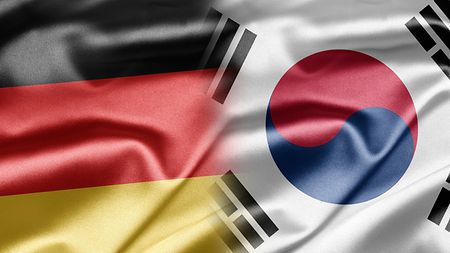[ad_1]

As Germany, which shares a similar economic structure with South Korea, takes steps to improve its economic structure and reduce its trade dependence on China, there is a call for South Korea to draw lessons from Germany’s example and work towards improving its own economic structure.
According to a report titled “Causes and Responses to Recent Economic Slowdown in Germany” by the Korea Institute for International Economic Policy (KIEP) on Nov. 1, the German federal government has initiated policies aimed at reducing its trade dependence on China as part of its efforts to overcome an economic slowdown.
In July, Germany passed a “Comprehensive China Strategy” for the first time, emphasizing the need to reduce dependence on China. This strategy explicitly recognizes China as both an essential economic partner and a competitor. It outlines a clear intention to maintain strong ties in areas such as trade, commerce, and investment, while reducing dependence on China, particularly in advanced strategic industries. German Foreign Minister Annalena Baerbock announced the comprehensive strategy for China, explaining that it is aimed at “risk reduction” rather than “economic disengagement” from China.
Efforts to transition away from a traditional manufacturing-based structure include an expansion of investments in eco-friendly technology, infrastructure, and research and development. This is because Germany has strengths in traditional manufacturing industries, but its competitiveness in advanced industries is relatively weaker.
The German government plans to include a climate change fund of 211.8 billion euros (US$224.5 billion) in next year’s budget and intends to invest in areas such as the hydrogen economy, clean energy, and climate-friendly mobility through the fund. Within this fund, there are plans to develop programs totaling 21.6 billion euros (US$22.76 billion) in the next year alone. The programs will support renewable energy legislation and be utilized for mobility development, including the expansion of charging infrastructure.
KIEP emphasized, “Considering the similarities in economic structure between South Korea and Germany, it is necessary to draw lessons from Germany and come up with measures as economic challenges could manifest in South Korea in the short and long term.”
South Korea shares a similar economic structure with Germany. According to KIEP, the manufacturing sector accounted for 28 percent of South Korea’s added value, and in Germany, it was 20.4 percent last year. These figures are notably higher compared to other advanced countries such as the United Kingdom at 9.4 percent, France at 10.7 percent, and the United States at 11.1 percent as of 2021. It’s worth noting that China is also considered the largest trading partner for both South Korea and Germany. The share of China in total trade volume is nearly the same with South Korea at 21.9 percent and Germany at 22.7 percent. Both countries have a high level of dependence on China for both exports and imports.
[ad_2]
Source link
